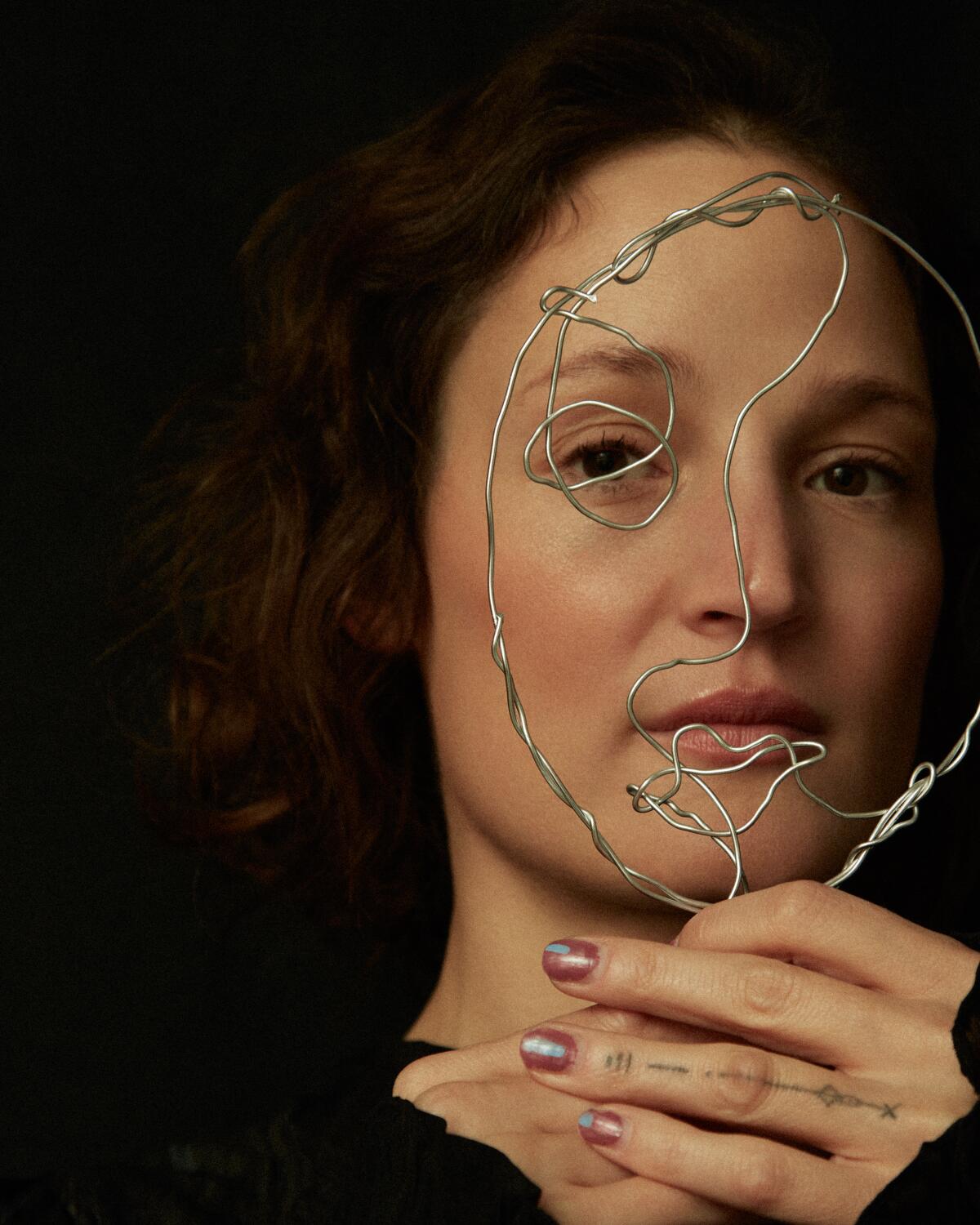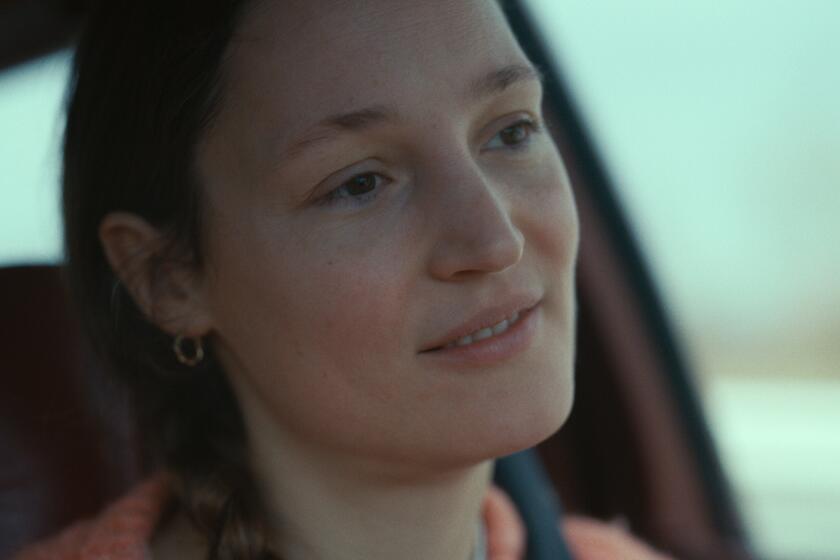Vicky Krieps cuts loose in a bold move for women with ‘Corsage’

- Share via
For Vicky Krieps, portraying Elisabeth, Empress of Austria, in “Corsage” felt almost inevitable. The actor had long been compelled by the unconventional ruler, having read her biography and watched Romy Schneider’s 1956 version “Sissi — The Young Empress” in her youth. After shooting the Austrian film “We Used to Be Cool” with director Marie Kreutzer in 2015, Krieps suggested they reunite for a contemporary take on the 19th century historical figure, also known as Sisi. Krieps was interested in the way the empress was forced into a particular image, as was Schneider after playing her.
“That was something that always interested me and amazed me, that so many women in different generations seem to have been suffering from the same thing,” Krieps says. “Each generation has different faiths, but it’s the same phenomenon: having to please in order to be loved. We present different role models of what a woman is. A woman is either the saint or the whore, either the mother or the lover. We always feel like we have to prove to ourselves that we are all these women. So when we were working I really felt like that would be something I would want to talk about. To be able to channel this energy or even to vent it.”
Initially, Kreutzer resisted the idea of a new film about Sisi, but as she and Krieps began going through historical archives and reading books about the empress, Kreutzer became just as compelled. Two years later, as Krieps was finishing the media tour for 2017’s “Phantom Thread,” a script for “Corsage” arrived. Krieps’ brush with celebrity while promoting Paul Thomas Anderson’s Oscar-nominated film made Sisi’s story feel even more relevant.
“I came back and I was completely exhausted and a little shocked, because I wasn’t used to being so exposed,” Krieps remembers. “In Europe, you don’t really have this. We don’t have this celebrity culture and how you are seen from the public suddenly because you’re an actor. I felt this a lot when I was in the U.S. my first time. How it was almost like a pressure that I had to perform now — to be the actress. So when I came back and the script was in my letterbox, I started crying, because I realized that, ‘This is exactly what I’ve just lived in a small way.’ It was so interesting that now this movie made so much sense for me to make.”
A family’s life is ruptured in this lacerating drama from French actor-turned-filmmaker Mathieu Amalric (“On Tour,” “The Blue Room”).
It took several years for Kreutzer to get funding for the film, and then it was delayed due to the pandemic. Krieps finally arrived in Vienna in March 2021 and began to prepare for the film, which shot throughout the spring and summer. She read endlessly about the empress, including letters and a diary from Sisi’s daughter. There was also an intense amount of physical preparation, including horse riding and fencing lessons, ice swimming training, Hungarian classes, and, of course, learning to wear a corset, which was so tight Krieps couldn’t eat while wearing it. The most important preparation came from a body language coach, who helped Krieps establish how Sisi would move.
“I had this whole construction for her, which areas she’s alive in when,” Krieps notes of her character. “When is she moving out of her heart? And when is she moving out of her head? To me, I created her in a way that she almost doesn’t touch the ground. She’s almost floating. I wanted her to have something that you always feel like she’s there, but she’s maybe already not here. So I was doing this walk that became like a dance of walking as if she’s not really there.”
Krieps’ performance as Sisi, who is equal parts historically accurate and dramatically imagined in “Corsage,” which opens Christmas week, represents the first time the actor has felt totally unafraid in a screen role. After “Phantom Thread,” Krieps admits to pulling back from the spotlight. She questioned whether she was too “vulnerable and too honest and weak for this game.” After that, she returned to Europe and made several films in France. Eventually, she allowed Sisi to help bring her to a place of undeterred confidence in her work.
“It took time, but I feel that I have understood that I can do it my way,” Krieps says. “I don’t have to play the game. I can be me. I can still do press, and I can still be an actress, but it will be me and the way I do it. I think this movie helped me enormously. It’s something I did, and it’s my interpretation of that rule, and it’s my honest, artistic proposal that people like or not like, but it’s really me. Something went away. I’m not scared anymore.”
On a larger level, Krieps is aware that “Corsage” taps into something fundamental for female viewers. Although it’s a story that can resonate with all audiences, her take on Sisi is fueled by a tactile sense of rage for how women have been treated — and how they continue to be treated. In that way, “Corsage” is as much a modern story as it is a period piece.
“I think it’s because as a woman it resonates something that is at the same time very, very old and very now and very zeitgeist,” Krieps says. “I sometimes feel that all the women before me [are] in me. I can feel them be angry, sometimes. Even generations of women that have lived things I have not lived, but sometimes I feel that we are all connected to stories that have happened before.”
More to Read
From the Oscars to the Emmys.
Get the Envelope newsletter for exclusive awards season coverage, behind-the-scenes stories from the Envelope podcast and columnist Glenn Whipp’s must-read analysis.
You may occasionally receive promotional content from the Los Angeles Times.











